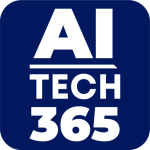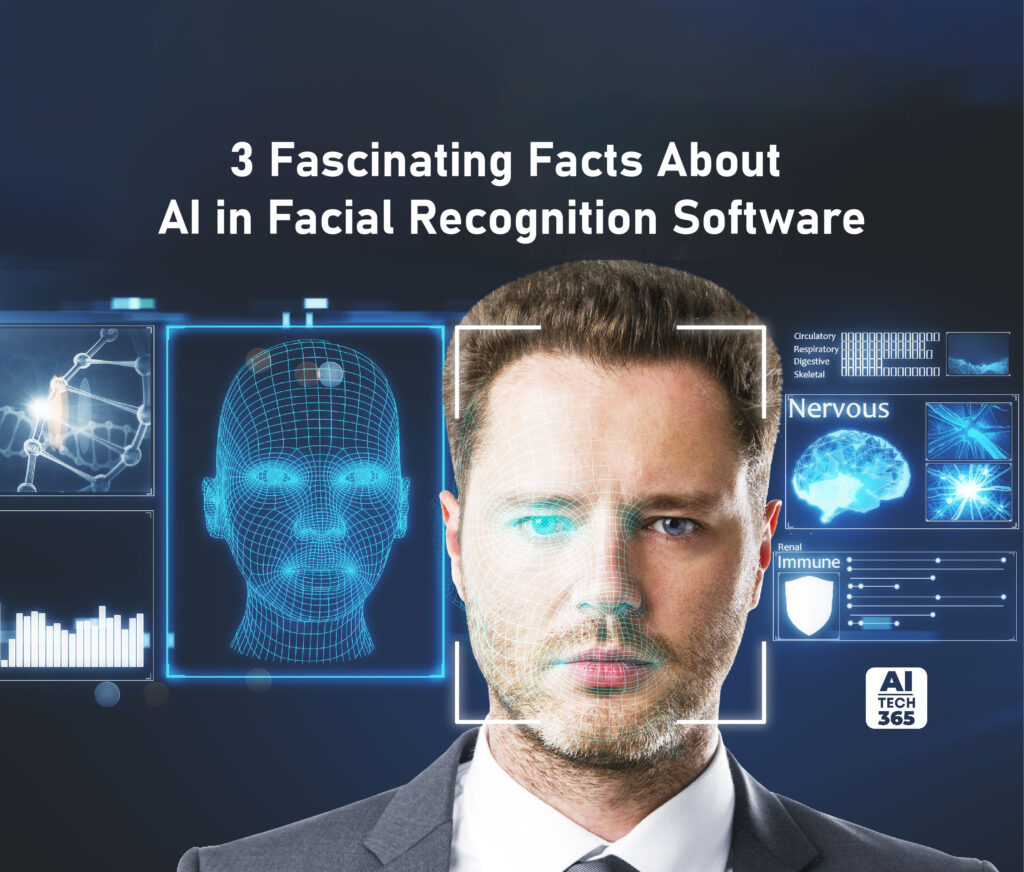Every decade has one famous technology grabbing the attention of the world. It is artificial intelligence (AI) for the 21st century. AI is rapidly being integrated into multiple streams and that goes for AI in facial recognition as well. In this blog, we will be discussing the top 8 fascinating facts about AI in facial recognition software that you need to know.
What Does AI in Facial Recognition Mean?
AI in facial recognition refers to the use of artificial intelligence technology to analyze and identify human faces in digital images and videos. Facial recognition systems utilize machine learning algorithms and artificial neural networks to detect and recognize facial features, such as the shape of the face, eyes, nose, and mouth.
This technology plays a crucial role in various fields, including security, law enforcement, biometrics, entertainment, and social media. By leveraging AI, facial recognition systems can accurately match and verify faces against a database, enabling applications such as access control, identity verification, and personalized experiences. By 2032, the facial recognition market is anticipated to expand, reaching a projected value of $19.3 billion.
Incorporating AI in facial recognition software has several notable advantages:
- Real-time Identification: Enables swift and accurate identification of individuals in real-time, enhancing efficiency in various applications.
- Anti-Spoofing Measures: Incorporates advanced anti-spoofing features to prevent fraudulent attempts, ensuring the system’s reliability and security.
- Reduced Racial or Gender Bias: Minimizes bias by undergoing model training across a diverse dataset of millions of faces, promoting fairness and inclusivity in recognition outcomes.
- Multi-camera Compatibility: Versatile enough to be seamlessly deployed across multiple cameras, extending its applicability and effectiveness in diverse settings.
3 Top Facts About AI in Facial Recognition Software
Missing Person? AI can help with that
Each year, tens of thousands of individuals go missing. In the U.S., the Federal Bureau of Investigation reports 460,000 missing children annually. Meanwhile, in the UK, the Missing People charity reveals that someone is reported missing every 90 seconds, totaling around 170,000 people—70,000 of whom are children. Governments all over the world are increasingly integrating AI in facial recognition software to tackle this issue.
For instance, China has introduced an innovative app leveraging facial recognition technology. Families can upload images of their missing children, and the app scans these pictures to detect matches, facilitating reunions and bringing families back together.
Stay Alert on the Road: A Tech Solution for Drowsy Driving
Drowsy driving is a more significant risk than many realize, with 1 in 25 drivers admitting to nodding off while behind the wheel. In response, businesses are embracing AI in face recognition software and technology to address this issue. These devices monitor the angle and position of the driver’s face, along with blink frequency. If signs of drowsiness are detected, the system issues an immediate alert, keeping drivers focused on the road and promoting safer driving practices.
AI in Photo Organization: Decluttering Down Memory Lane:
Arranging photos on a laptop or phone can be boring and take a lot of time, especially when you have lots of pictures. Sorting them into folders one by one can be tough. However, face verification makes this task more fun. Apps like Adobe Lightroom, Google Photos, and Apple Photos have a feature that recognizes faces in photos. Users can tag individuals in photographs, allowing the technology to recognize and categorize photos of those individuals automatically. This not only streamlines the process but also creates separate folders for each person, simplifying photo organization.
Is the Use of AI in Facial Recognition Software Safe?
The application of AI in facial recognition software has sparked worries regarding privacy infringements and the potential for misuse. Moreover, the growing automation of tasks through AI has raised concerns about job displacement and the potential disruption to economies. It is essential to consider these implications as AI continues to advance and permeate various industries. By employing sophisticated algorithms, facial recognition software harnesses AI capabilities to identify any threats.
Furthermore, without adequate regulation, facial recognition poses a threat to our remaining shreds of privacy. The current technological landscape allows strangers to capture your image and uncover personal details like your name and occupation. Everyone must comprehend the potential implications of facial recognition as we move toward implementing appropriate legislation to ensure the responsible use of this technology, states Marc Fischer, CEO of Dogtown Media LLC.
Closing Thoughts
The transformative impact of AI in facial recognition software is undeniable. As this technology continues to evolve, it brings forth both remarkable advancements and critical considerations. The ability to harness the power of AI in facial recognition holds great potential for enhancing security, efficiency, and convenience. However, the imperative lies in balancing these benefits with stringent regulations to safeguard privacy and ethical usage. As we navigate this landscape, it is crucial to remain vigilant, fostering a collective understanding of the responsible deployment of AI in facial recognition to ensure a harmonious integration into our ever-evolving digital society.

